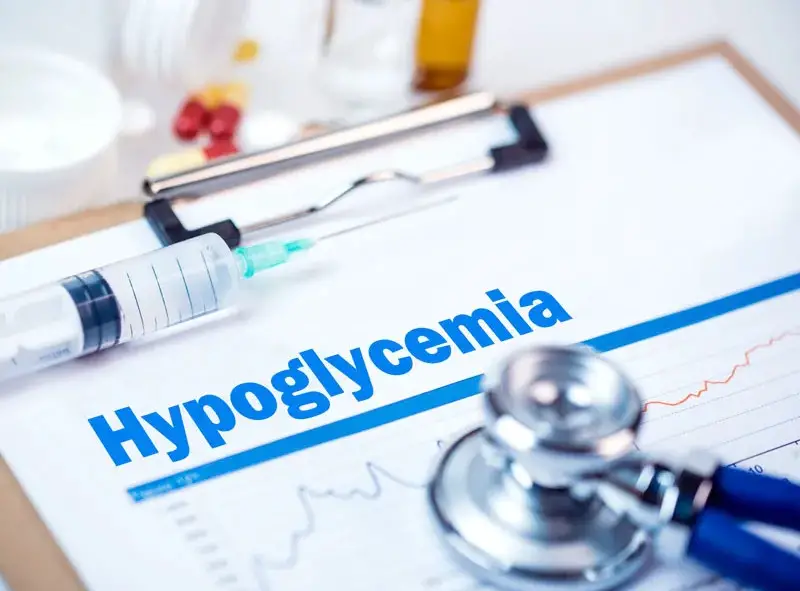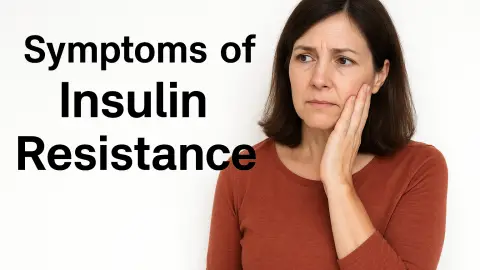Reactive hypoglycemia, sometimes called postprandial hypoglycemia, is a condition in which blood sugar levels drop abnormally low within a few hours after eating. Unlike fasting hypoglycemia, this form is directly related to how the body processes food and insulin following meals. It can cause symptoms such as dizziness, sweating, shakiness, confusion, and sudden hunger, often leaving those affected feeling frustrated and uncertain about how to manage their daily lives.
Understanding the best treatment options is crucial, not only to relieve symptoms but also to restore confidence and balance in everyday activities. In this article, we will explore the underlying causes of reactive hypoglycemia, discuss medical and dietary strategies, and explain how lifestyle changes can make a long-term difference. By the end, you will have a comprehensive view of how to approach treatment in a sustainable and practical way.
Disclaimer: This article is for informational purposes only and not a substitute for medical advice.
Understanding Reactive Hypoglycemia

What Reactive Hypoglycemia Really Means
Reactive hypoglycemia occurs when the body produces too much insulin in response to a carbohydrate-heavy meal. This excess insulin causes blood sugar to fall below normal levels, usually within four hours after eating. Unlike diabetes-related hypoglycemia, this condition often appears in individuals who may not have diabetes but are sensitive to rapid blood sugar fluctuations.
The condition is closely linked to how glucose is absorbed, stored, and used by the body. When digestion occurs too quickly or when the pancreas overreacts, the delicate balance between insulin release and blood sugar stability can collapse. Recognizing this pattern is the first step toward effective treatment.
Common Symptoms That Signal the Condition
Many people notice sudden fatigue, trembling, mood swings, or a racing heartbeat after meals. Others might experience blurred vision, intense hunger, or difficulty concentrating. These episodes can vary in severity but are typically relieved when food or drink containing sugar is consumed.
The unpredictable nature of these symptoms makes treatment planning even more important. Left unmanaged, reactive hypoglycemia can interfere with work, social life, and overall well-being, underscoring the need for proactive treatment strategies.
Medical Perspective on Treatment
How Doctors Diagnose Reactive Hypoglycemia
A healthcare professional usually begins by asking detailed questions about eating habits and symptom timing. Blood tests, such as an oral glucose tolerance test, may be ordered to measure how the body responds to sugar intake. The goal is to confirm that symptoms are linked directly to low blood sugar rather than another health condition.
Diagnosis also involves ruling out other disorders, such as insulinoma, diabetes, or hormone imbalances. Once confirmed, doctors generally recommend a combination of dietary changes and medical monitoring rather than immediate use of medications.
When Medication May Be Considered
Although diet and lifestyle adjustments are the primary treatments, some cases may benefit from medication. Doctors might prescribe drugs that slow carbohydrate absorption or influence insulin release. These options are usually reserved for individuals who do not respond adequately to dietary modifications alone.
Medications are rarely the first line of treatment, but they can play a supportive role in stabilizing blood sugar when used carefully. Each case must be assessed individually, with ongoing monitoring to ensure the chosen therapy is both effective and safe.
Dietary Approaches for Managing Symptoms
The Importance of Balanced Meals
Food plays the most central role in treatment, as reactive hypoglycemia is triggered by what and how people eat. Balanced meals that combine protein, fiber, and healthy fats with complex carbohydrates are key. This combination slows digestion and prevents the sudden spike and drop in blood sugar that leads to symptoms.
Instead of skipping meals, eating regularly spaced portions throughout the day helps maintain a steady glucose supply. Small, frequent meals reduce the body’s need for large insulin surges and give more consistent energy levels.
Choosing the Right Carbohydrates
Not all carbohydrates affect blood sugar equally. Simple sugars such as those found in pastries, candy, and sugary drinks are quickly absorbed, causing blood sugar to rise and then fall rapidly. In contrast, complex carbohydrates from whole grains, legumes, and vegetables digest more slowly, releasing glucose steadily into the bloodstream.
People managing reactive hypoglycemia often benefit from focusing on foods with a low glycemic index. These options provide energy without provoking excessive insulin release, forming the foundation of a stabilizing diet.
The Role of Protein and Healthy Fats
Protein sources like lean meats, fish, eggs, beans, and dairy products not only provide nourishment but also delay the absorption of carbohydrates. This slower digestion prevents sudden drops in glucose levels. Healthy fats from sources such as avocados, nuts, seeds, and olive oil also contribute to longer-lasting satiety and steadier energy.
A combination of protein and fat alongside complex carbohydrates can transform how the body responds after meals. Instead of feeling a rapid crash, individuals experience a more gradual decline in energy, which helps maintain mental clarity and physical comfort.
Lifestyle Adjustments That Support Treatment
The Role of Physical Activity
Regular exercise improves insulin sensitivity, meaning the body uses insulin more efficiently. Activities such as walking, swimming, or light jogging can help regulate glucose metabolism. However, intense exercise on an empty stomach may trigger hypoglycemia, so careful planning of workout timing and meals is essential.
Gentle, consistent activity is most effective in supporting treatment. Combined with proper nutrition, it strengthens the body’s ability to maintain stable blood sugar levels throughout the day.
Stress Management and Its Impact
Stress hormones such as cortisol and adrenaline can influence blood sugar regulation. High stress levels may worsen symptoms or make them appear more frequently. Techniques like deep breathing, meditation, yoga, or simply spending time in nature can help reduce stress and improve overall control.
Managing stress is not just about emotional health; it directly impacts physical stability as well. By lowering stress responses, the body maintains more predictable patterns of glucose release and insulin production.
Importance of Quality Sleep
Sleep is another essential factor in managing reactive hypoglycemia. Inadequate or irregular sleep patterns can disrupt hormonal balance, leading to unpredictable blood sugar fluctuations. Establishing a consistent bedtime routine, reducing caffeine intake late in the day, and creating a restful environment can all support stable glucose control.
When combined with diet and stress management, proper sleep creates a strong foundation for long-term treatment success.
Long-Term Outlook and Prevention
How to Avoid Severe Episodes
Avoiding severe hypoglycemic events requires consistent planning and awareness. Carrying a small healthy snack, such as nuts or a piece of fruit, can help during unexpected delays in meals. Monitoring body signals closely and responding early prevents symptoms from becoming overwhelming.
Learning which foods and activities trigger episodes also empowers individuals to avoid unnecessary risks. Over time, these preventive strategies become second nature, reducing the frequency and intensity of hypoglycemia.
Building a Sustainable Lifestyle
Treatment is not just about quick fixes but about creating habits that last. Those who commit to balanced eating, regular exercise, and mindful living often report dramatic improvements in quality of life. These lifestyle adjustments not only manage symptoms but also contribute to long-term health in areas like cardiovascular strength and mental resilience.
Sustainability is achieved when treatment blends naturally with daily routines. Instead of restrictive diets or constant worry, individuals gain confidence in their ability to enjoy food and life without fear of sudden crashes.
Frequently Asked Questions
Can Reactive Hypoglycemia Lead to Diabetes?
Reactive hypoglycemia itself is not diabetes, but in some individuals, it may be a warning sign of prediabetes or insulin sensitivity issues. Regular check-ups and blood sugar monitoring help identify any potential progression early.
Is Reactive Hypoglycemia a Permanent Condition?
For many people, symptoms can be greatly reduced or even eliminated with proper dietary and lifestyle adjustments. While some may experience recurring challenges, proactive management often leads to long periods without episodes.
Should I Avoid All Sugars?
It is not necessary to eliminate all sugars, but refined and processed sugars should be minimized. Natural sugars found in fruits can still be part of a balanced diet, especially when paired with protein or fiber to slow absorption.
What Is the Best Diet Plan?
The most effective diet plan emphasizes whole grains, lean proteins, healthy fats, and plenty of vegetables. The key is balance and consistency rather than extreme restrictions. Individual adjustments may be necessary depending on personal tolerance and response.
How Quickly Can Treatment Show Results?
Many people notice improvement within days of adjusting their meals and routines. However, long-term stability requires ongoing effort and patience. The body gradually adapts to new patterns, resulting in more reliable control over time.
Conclusion
Reactive hypoglycemia can be a challenging condition, but effective treatment is within reach. The combination of balanced nutrition, thoughtful lifestyle changes, and medical guidance offers a path to relief and stability. By focusing on slow-digesting carbohydrates, regular meals, physical activity, and stress management, individuals can regain control over their blood sugar and their daily lives.
The best treatment is not a one-size-fits-all solution but a personalized approach that evolves with experience. With knowledge, discipline, and the right strategies, managing reactive hypoglycemia becomes not just possible but empowering.
Disclaimer: This article is for informational purposes only and is not intended as medical advice. Reactive hypoglycemia treatment should always be discussed with a qualified healthcare professional who can provide guidance tailored to your individual health needs. Do not use the information provided here as a substitute for diagnosis or treatment from your doctor or healthcare provider.


